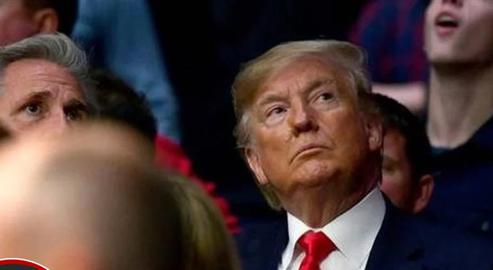Donald Trump's turbulent presidency is over, and Joe Biden is set to embark on a new course that will be fundamentally different from that of the past four years. Ali Akbar Salehi, a former foreign minister and head of Iran's Atomic Energy Organization, says the chief obstacle to US-Iran relations is the Islamic Republic's one-man way of governing.
Is there a chance that US relations with the Islamic Republic will normalise during the Biden era? According to our correspondent, the short answer to this question is probably no: at least, not as long as Ayatollah Ali Khamenei is alive.
***
Ali Akbar Salehi, one of the most trusted politicians in the Islamic Republic and now the head of the country’s Atomic Energy Organization, has said the United States’ main issue with Iran is the principle of Velayat-e faqih: the ideology that dictates that the clergy, under Supreme Leader Khamenei, holds the highest authority. "Our main challenge with the West,” he says, “is the way we govern. It is an unknown phenomenon for them, and there is nothing anywhere else in the world like the principle of velayat-e faqih."
A strange way of governing in the 21st century, where absolute power is in the hands of a person who is not elected, cannot be removed, and with a life tenure, leaving no prospect for change. While in Saudi Arabia and other Gulf Arab states the main figurehead is similarly unelected, they have different governance structures to Iran that allow for some policy change over time.
In November 2019 the Islamic Republic initiated bloody crackdowns on popular protests that left hundreds of its own people dead. Then, in January 2020, the Revolutionary Guards shot a Ukrainian passenger plane with dozens of Iranians on board out of the sky. No one has been held responsible. The latest example, which came as a surprise even to those loyal to the regime, was the ban on imports of US and British-made coronavirus vaccines in a situation where Iran is one of the most vulnerable countries to the disease. This all happened under the auspices of one person, and the same person to whom Salehi was referring: the absolute jurist.
Khamenei Won’t Budge on Militancy
During the presidency of Barack Obama, the US government made strenuous efforts to contact Khamenei and announce its acceptance of the Iranian political system. Obama wrote several letters to him, and at a time when President Mahmoud Ahmadinejad was hoping for negotiations, he considered this to be within the sole remit of Khamenei and left Ahmadinejad's letters unanswered.
The Obama administration's Secretary of State John Kerry repeatedly praised Khamenei for banning the use of nuclear weapons. Obama entered unprecedented direct talks under the supervision of the Iranian Supreme Leader, and finally accepted his red lines of uranium enrichment in Iran and the ballistic missile program.
At a time when the two countries were thought to be at the shortest distance from each other, Khamenei suddenly proposed a theory of US influence in Iran with the deal, saying that he would help militant groups in the region as much as needed and would never accept rapprochement with the United States.
The consequence of this behavior became clear about a year later during Trump's presidency. After the Iran-Iraq war, Trump's four-year term has been the most damaging period for the Islamic Republic in its 41-year history. Not only because of the withdrawal of the United States from the deal and the return of the sanctions lifted by Obama, but also the application of fresh sanctions and even the assassination of General Ghasem Soleimani, one of the closest figures to Khamenei.
Iranian Regime’s Values Unacceptable
Even if the Biden administration turns a blind eye to sanctions against countries that buy oil from Iran in order to pave the way for the lifting of sanctions, this is the path Khamenei once went on for better terms with Obama, but he didn’t want to permanently resolve the issues between the two countries.
The foundations of the Islamic Republic of Iran contradict the values that modern countries such as Japan, Malaysia, and South Korea in Asia and European and American states adhere to: a kind of internationally responsible behavior and predictability that Iran deliberately avoids.
For example, many countries today still do not recognize the existence of Israel, but there is no other government in the world that wants to outright destroy Israel: Iran’s parliament has made it "the duty of the government" to put an end to Israel in the next 25 years.
Khamenei also sees the United States as an entity whose system and values are at odds with him. These factors do not make the Islamic Republic a normal government in the eyes of others. Even from the point of view of a large proportion of Iranians, the imposed way of life in this country, the scope of which has now even been extended to a ban on accredited vaccines, is not normal.
In the meantime, what is important and an opportunity for the ruling regime in Iran with the arrival of Joe Biden is "tension management". The Biden era will probably give Iran a few months to temporarily reduce the intensity of the previous administration's pressures until the next crisis happens.
This situation may be fundamentally different after the leadership of Khamenei. But with him in power, even with a Biden administration, there is little chance of a lasting reduction of disputes.
Related coverage:
Khamenei and Rouhani Repeat the Old Rhetoric About the Future of Iran-US Relations
Rouhani's Team Cautiously Welcomes Biden's Victory but Khamenei Insists US “Enmity” Will Continue
When Will US Sanctions Hit Iranian Oil Sales?
What you Need to Know About Trump and the Nuclear Deal
visit the accountability section
In this section of Iran Wire, you can contact the officials and launch your campaign for various problems




























comments